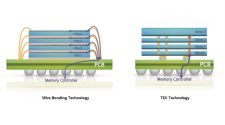Researchers at Nokia Bell Labs and AMBER – the SFI Centre for Advanced Materials and BioEngineering Research – have announced the creation of what they claim as a “new innovative formula” for battery composition that makes batteries more powerful.
The two companies say the new battery technology offers 2.5 times the battery life in the same volume as the current market leading super slim battery – and provides “critical attributes for 5G networks, renewable energy grids, and the consumer and Industrial Internet of Things”.
According to Nokia and AMBER, the increasing power requirements of connected devices such as smartphones, drones, electric cars and robots necessitates greater battery performance for both new applications as well as longer battery lifetimes.
“The new battery design also has far-reaching implications for 4G and 5G networks where conventional power may not be available for network equipment, or where emergency backup battery systems are essential to keep systems running,” the companies say.
|
|
“By packing more energy into a smaller space, this new battery technology will have a profound impact on 5G and the entire networked world,” said Paul King, one of the lead investigators on the project and member of the technical staff, Nokia Bell Labs.
“The combination of Nokia Bell Labs industry and device knowledge and AMBER’s materials science expertise allowed us to tackle an extremely difficult problem involving multiple disciplines. Our results were achieved through the deeply collaborative mode in which we work, underscoring the value of engaging with AMBER as part of our global research strategy.”
Dr. Lorraine Byrne, AMBER Executive Director said: “The significant advancement in battery technology outlined in this research is a testament to the strong collaboration between AMBER and Nokia Bell Labs”.
“Bringing scientists together from industry and academia with a common research goal has resulted in a substantial scientific breakthrough.
“AMBER’s partnership with Nokia Bell Labs through their Distinguished Academic Partners Program has been a hugely positive experience and clearly illustrates the benefits of industry-academic engagements. I look forward to AMBER’s collaboration with Nokia Bell Labs continuing to break new boundaries in science creating impact for society.”
The two companies say an additional benefit to the new technology is its potential to improve the performance of large-scale energy grids powered by renewable energy, and to manage the high fluctuation in energy generation in today’s wind and solar renewable technologies.
They cite a new study from Wood Mackenzie showing that the energy storage in 100% renewable systems will likely be 25 times higher as compared to today’s systems.
“This will pose issues as the need for efficient, fast charging and compact energy storage becomes even more imperative,” the companies say.
Nokia Bell Labs and AMBER have filed a patent to protect the new technology design.
LEARN HOW TO REDUCE YOUR RISK OF A CYBER ATTACK
Australia is a cyber espionage hot spot.
As we automate, script and move to the cloud, more and more businesses are reliant on infrastructure that has high potential to be exposed to risk.
It only takes one awry email to expose an accounts payable process, and for cyber attackers to cost a business thousands of dollars.
In the free white paper ‘6 steps to improve your Business Cyber Security’ you will learn some simple steps you should be taking to prevent devastating malicious cyber attacks from destroying your business.
Cyber security can no longer be ignored, in this white paper you will learn:
· How does business security get breached?
· What can it cost to get it wrong?
· 6 actionable tips
DOWNLOAD NOW!
















